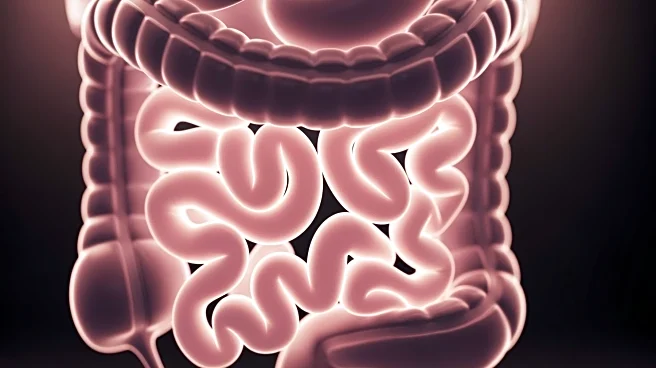What's Happening?
Irritable Bowel Syndrome (IBS) affects approximately 25-45 million American adults, with women being more susceptible to the condition. IBS is characterized by abdominal discomfort, pain, and irregular
bowel movements, including diarrhea and constipation. Dr. Walid Chalhoub, a gastroenterologist at MedStar Health, explains that IBS is a functional gastrointestinal disorder that does not progress or damage organs. Women represent 65-70% of diagnosed IBS cases, experiencing symptoms more intensely than men. Hormonal fluctuations, particularly during menstruation, pregnancy, and menopause, exacerbate IBS symptoms. Additionally, dysregulation of the gut-brain axis and psychological factors like depression contribute to the prevalence of IBS in women. Treatments for IBS are individualized, focusing on dietary changes, medications, and behavioral interventions.
Why It's Important?
Understanding the gender disparity in IBS prevalence is crucial for developing targeted treatments and improving quality of life for affected individuals. Women with IBS often report higher rates of depression and lower quality of life, highlighting the need for comprehensive care that addresses both physical and psychological aspects. The insights provided by gastroenterologists can guide healthcare providers in offering more effective management strategies, potentially reducing the burden of IBS on women. Additionally, recognizing the role of hormonal fluctuations and psychological factors in IBS can lead to more personalized treatment plans, improving patient outcomes.









